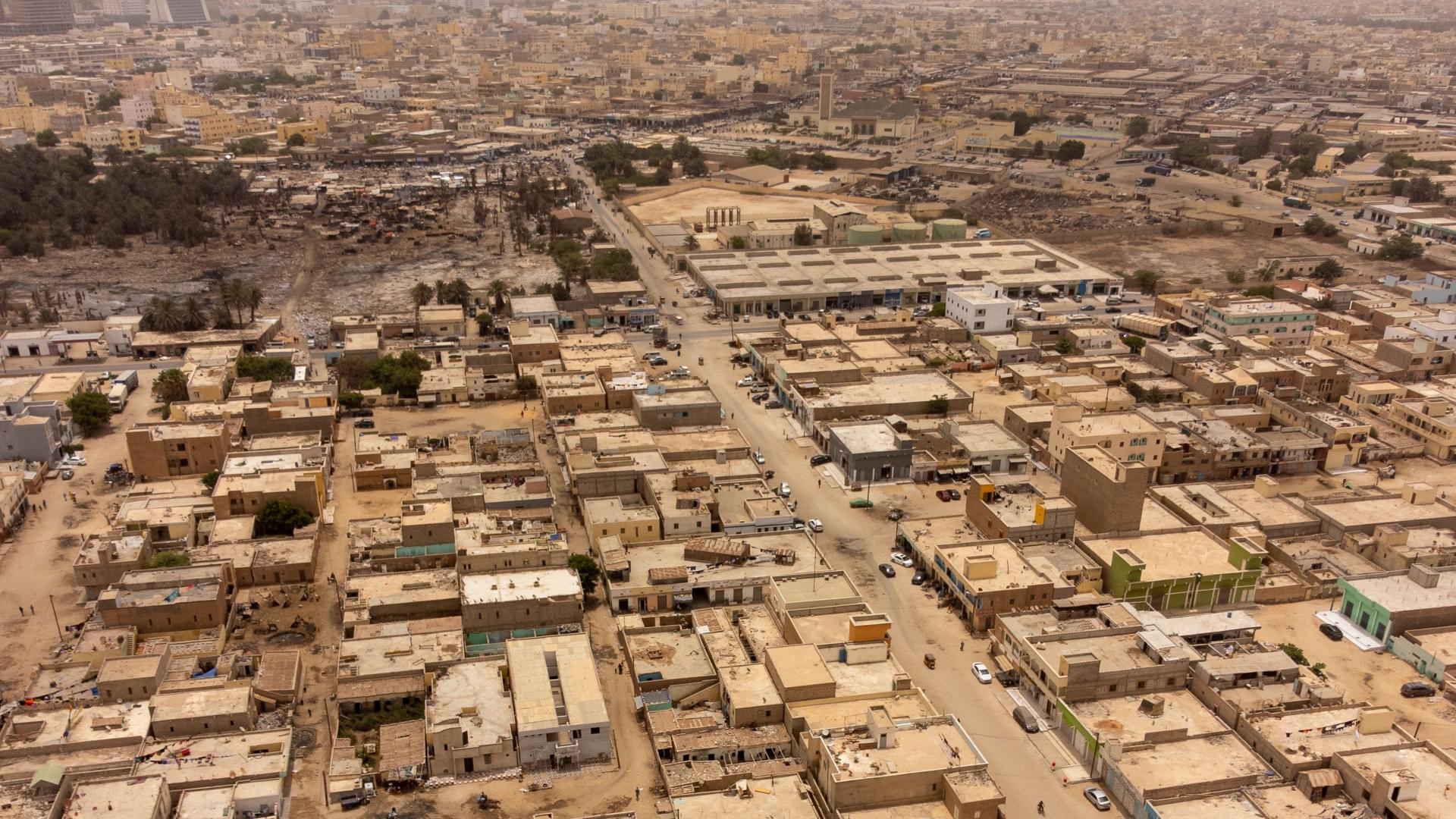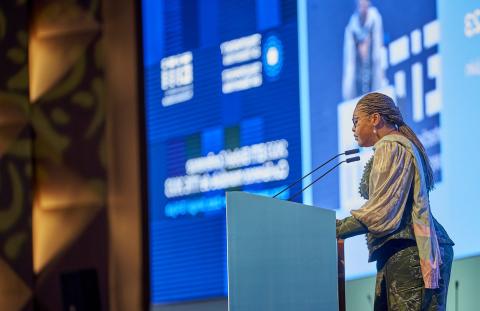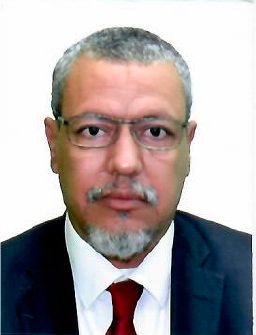
Mauritania
Overview and role of the EITI
Mauritania’s economy is highly dependent on the extractive sector, which accounted for 76.76% of total exports and 23.85% of GDP in 2022. The country is a leading producer of iron ore, copper, gold, silver, oil and gas. Recent discoveries of offshore gas reserves have increased production forecasts. In 2018, Mauritania and Senegal reached a final investment decision with energy companies BP and Kosmos Energy for the Greater Tortue Ahmeyim project, which is expected to generate USD 19 billion in government revenues over the next three decades.
Social conflicts have centred on mining workers’ rights, community relations and environmental impacts of extractive activities. In addition to EITI implementation, municipal councils have made efforts to improve outreach, dissemination and data collection since 2015.
Mauritania is using the EITI to support economic growth and strengthen the contribution of extractive revenues to development projects and poverty reduction. ITIE Mauritania’s priorities include improving the systematic disclosure, accessibility and use of extractive sector data and facilitating multi-stakeholder dialogue on extractive sector governance.
Economic contribution of the extractive industries
- 30%
- to government revenues
- 76.76%
- to exports
- 23.85%
- to GDP
- 0.98%
- to employment
Innovations and policy reforms
-
In 2019, the government issued a decree mandating the systematic disclosure of extractive sector data, which was drafted with the support of ITIE Mauritania. With the support of GIZ, ITIE Mauritania subsequently established a data submission portal and “Data Warehouse”, which systematically consolidates all extractive sector data published by private companies and government. The government’s data portal also provides an overview of mining production. In 2021, Mauritania joined the EITI’s pilot project on systematic disclosure and prepared 2 EITI reports based on this approach.
-
EITI Mauritania expanded its scope to support efforts to Energy transition, the country published end 2022 a report on the Perspectives of the natural gas and green hydrogen sectors in Mauritania.
The EITI Standard for extractive industry transparency has become a national and global benchmark for governments, international companies, the public and private sectors and civil society.
Extractive sector data
Production and exports
Revenue collection
Revenue distribution
Top paying companies
Extractive sector management
Tax and legal framework
Mauritania’s mining sector is regulated by the Law 2008-011 of the Mining Code, which was last amended in 2014, which defines the conditions for obtaining mining rights. In addition, Law n°2012-012 provides a model mining convention which serves as a reference in relations between the state and operators in the mining sector. An overhaul of all mining sector regulations is underway.
The Treasury collects and manages taxes paid to the central government. The three main taxes and fees imposed on mining companies include unique annual royalties, dividends from state participation and contributions to the state budget, a fee which was introduced in 2014.
The petroleum sector is governed by the Hydrocarbons Code, comprised of Law n°2010-033 amended by Law n°2011-044 and Law n°2015-016. Mauritania’s national oil company, Société Mauritanienne Des Hydrocarbures et de Patrimoine Minier (SMHPM), receives the state’s share of oil. The national resource fund, Fonds National de Revenus des Hydrocarbures (FNRH), manages all oil and gas revenues.
Licenses and contracts
The Ministry of Petroleum, Mines and Energy grants mining and oil licenses and manages the mining and petroleum cadastres. In 2019, the government established new mining cadastre and adopted an implementation decree 2023-048, which clarifies the technical and financial criteria required to award permits, and the minimum financial commitment required to start a mining research project.
For oil and gas exploration and production, contracts are in principle concluded following a competitive bidding process in accordance with the Hydrocarbon Code, the current practice is to derogate from this rule and opt for direct negotiation. Due to the general nature of the Petroleum Code, most of the specific provisions governing petroleum exploration and production are included in production sharing contracts (PSCs).
The Ministry has published a note on the government's policy on oil contract disclosure and one on mining contract disclosure. Mining conventions signed with the mining operators are published in the Official Journal and on a government portal. are published on the ITIE Mauritanie website.
Beneficial ownership
Mauritania does not have a legal framework mandating the disclosure of beneficial ownership. In 2019, Mauritania conducted a study on beneficial ownership disclosure and urged mining and oil companies to disclose beneficial ownership data, however these efforts did not yield the expected results. Mauritania has started publishing some information on legal and beneficial owners through EITI Reports, however the data is not comprehensive.
Revenue distribution
The principles of public accounting (unicity of cash and separation of authorizing and accounting officers) imply that all revenues from the extractive sector should be paid into a single government fund. Revenues from the sector are an integral part of overall revenues and are used to cover the State's expenses.
Almost all extractive industry revenues flow to the Treasury and there is no legal framework for distribution revenues at the subnational level.
EITI implementation
Governance
ITIE Mauritanie is administered by the Mauritania Multi-Stakeholder Group (MSG), also known as the Comité national. The MSG is chaired by Mohamed Lemine Ahmedou, advisor to the Prime Minister. It is comprised of representatives from government, industry and civil society.
Timeline
Government announces commitment to join the EITI
Multi-stakeholder group is formed
2005 EITI Report published
Report
2006 EITI Report published
Report
Mauritania joined
2008 EITI Report publishedt
Report
2009 EITI Report published
Report
Designated compliant country
2011 EITI Report published
Report
2012 EITI Report published
Report
2013 EITI Report published
Report
2014 EITI Report published
Report
Validation
2015 EITI Report published
Report
2016 EITI Report published
Report
Found to have made "meaningful progress with considerable improvements"
2017 EITI Report published
Report
Validation
2018 EITI Report published
Report
2019 EITI Report published
Report
2020-2021 EITI Report published
Report
2022 EITI Report published
Report
Validation
Mauritania was found to have made meaningful progress with considerable improvements in implementing the 2016 EITI Standard in October 2020, following its third Validation. Mauritania has fully addressed the four corrective actions identified in its previous Validation. The 2024 Validation has already started since the first of January 2024.







